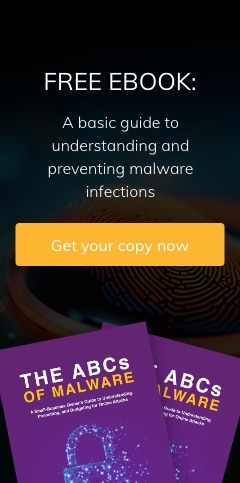Microsoft has taken its share of hits lately about Windows 8, the most recent version of its long-running Windows operating system. However, there’s something a lot of critics are leaving out on the subject of this much-maligned operating system: Despite its flaws, it works pretty well. PC World writer Brad Chacos answered this in a recent feature story.
- Columbus: (614) 702-7700
- Cleveland: (216) 393-2484
- Akron/Canton: (330) 685-9100
Blog
Does your business have a cybersecurity plan?
Here’s a noteworthy fact: In 2012, companies with just one to 250 employees — what we typically think of as small businesses — were the victims in more than 30 percent of all cyber attacks. Entrepreneur Magazine cites this statistic, taken from the 2013 Internet Security Threat Report from Symantec, to demonstrate a point: Even small businesses need a cybersecurity plan.
They’re not kidding: A MacBook named the best Windows laptop
Another humiliation for Microsoft? Seems like it. After the critical drubbing the company has had for Windows 8, a PC services company has recently ranked the 13-inch MacBook Pro as being the laptop that does the best job running Windows software.
What’s wrong with Microsoft’s new logos?
Poor Microsoft. The company can’t do anything whatsoever without generating criticism. Microsoft has already been reeling from the PR disaster that is Windows 8
Are you sloppy with your online passwords? It’s time to change your habits
Are you guilty of one of the worst bad technology habits ?
How many of these bad tech habits are you guilty of?
You might see yourself a tech-savvy sort, one who would never fall victim to a few of the bad tech habits that increase your chances of being hacked or having your smart phone stolen. However, you may just be surprised at how many of the worst tech habits that you practice. Fortunately, PCWorld just recently ran a list of many of the most dangerous tech habits
You might be surprised which mobile device is hacked the most
Mobile devices have always been often considered as more safe. Desktop and laptop computers, the theory goes, are far more susceptible to hackers and cyber criminals. That’s true to a certain extent.
Time to buy a computer monitor? Do your research
Is it time for it to upgrade your LCD computer monitor? Guess what? It’s not as straightforward a task as you may think.
Phone passcodes are far from hacker-proof
Hackers are becoming ever more clever with regards to gaining access to the data stored on smart phones. And hackers are accomplishing this even though consumers protect their phones with lock-screen passcodes. As a current story on the Lifehacker technology Web site says, passcodes have never been a foolproof way to secure your smart phone.
Follow these tips to keep your eyes healthy at the office
Does your job demand that you stare at a computer screen for several hours at a stretch? If so, eyestrain may become a serious problem

